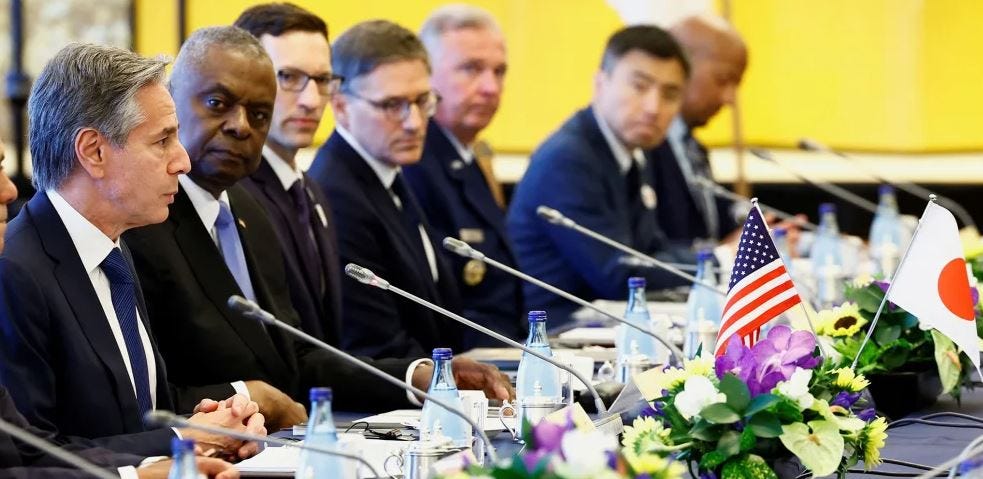Pacific Means Peaceful
Mario Cavolo opines New U.S. Japan Military Expansion Much Ado About Nothing', Warwick Powell writes 'A positive peace is possible', Dilma Rousseff says multipolar economy will help prevent crises
New U.S. Japan Military Expansion Much Ado About Nothing
By Mario Cavolo
According to the U.S. Govt as reported by CNN There Are Mounting Security Threats in Asia.
No there isn't.
Of course they mean China.
Once again let me be clear. You're being lied to.
The only mounting security threat in Asia is the mounting, expanding military of the United States whic…





